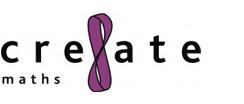Leisure and Tourism
A collection of resources designed to provide ideas and inspiration for teaching mathematics in the context of leisure and tourism. These resources have been selected as relevant to post-16 vocational learners who are working towards re-sitting GCSE Mathematics.
Without Tech Support allows students to investigate the use of communications technology. Mathematical topics covered include map reading and scales. Around the world is an activity involving speed, distance, time equation to calculate how long it takes to travel to destinations around the globe from the UK via today's global transport options and looking towards future developments. Visiting the Capital looks at London's most popular tourist attractions, bringing in ideas of interpreting information from tables and manipulating data. Eco Tourism involves analysis of information and the need to work with a mixture of units.
View the MEI Contextualisation Toolkit
Without Tech Support
This activity, from the Institution of Engineering and Technology (IET), allows students to investigate the uses of communications technology in the modern world. There is an opportunity to audit the students’ skills such as visualisation or map-reading to form a scale drawing. These are skills that may not have been developed due to the use of various electronic devices.
Curriculum links include waves, satellite navigation and the social, economic and environmental impact of new technologies.
This resource is supported by the videos Engineering for Entertainment and Communications for Safety, and by a full set of resources in the Inform and Entertain Me collection.
Use the speed equation to calculate journey times *suitable for home teaching*
In this activity, students use the speed, distance, time equation to calculate how long it takes to travel to destinations around the globe from the UK via today's global transport options. They are then introduced to a new concept to global travel: the vacuum tube train - will this solve some of the problems they identified? This may be able to reach speeds of 4,000 mph, but is it a realistic option?
Students consider future options for global transport, thinking about environmental, economic, ethical and social impacts of each type of transport. For example, comparing fuel efficiencies, impact for infrastructure on the environment and how polluting they are.
Other lessons and resources for this theme can be found in the Energy and Transport collection.
Tourism in London
This resource from stats4schools focuses on which attractions in London are the most popular using data from the National Tourist Board covering the years 1994 to 2001. Students can interpret information from tables, manipulate data, investigate tourism and plan a visit to London.
The resource includes a lesson plan, worksheet and dataset.
Eco Tourism
These Cre8ate maths activities involve complex analysis of information, a variety of calculations and the need to handle mixture of units, moving between grams, kilograms and tonnes.
These activities are designed to give pupils an insight into the relative cost to the environment of travel and to highlight ways in which an individual, or family, can reduce their ‘carbon footprint’.
Leisure and tourism (other sources of ideas)
A collection of resources which provide ideas and inspiration for teaching mathematics in the context of leisure and tourism. The resources included in this collection require some adaptation to make them appropriate for the particular audience.


